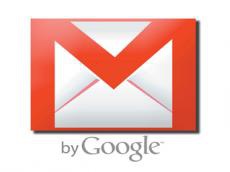|
|
TODAY.AZ / Weird / Interesting
Google working on super secure e-mail
04 June 2014 [11:45] - TODAY.AZ
 It's called "End-to-End" encryption, and it's the best way to stop anyone from snooping on your emails. Google would turn your emails into jumbled code, and the only person who can see the email in plain text is the trusted person on the other end.
It's called "End-to-End" encryption, and it's the best way to stop anyone from snooping on your emails. Google would turn your emails into jumbled code, and the only person who can see the email in plain text is the trusted person on the other end.Hackers don't stand a chance. In fact, neither does the National Security Agency. It's the kind of encryption ex-NSA contractor Edward Snowden used to communicate with journalists before he went public last year with damning documents proving the extent of U.S. government surveillance. It's what spies use -- it's that good.
But End-to-End is not available just yet. In a blog post, Google said the program is in a public testing phase. After that, you'll be able to download the app and add it to your Google Chrome Web browser. If you use the browser, it'll work with any Web-based email provider.
"We recognize that this sort of encryption will probably only be used for very sensitive messages or by those who need added protection," wrote Stephan Somogyi, a Google product manager who oversees security and privacy, in the blog. "But we hope that the End-to-End extension will make it quicker and easier for people to get that extra layer of security should they need it."
Here's how Google's super encryption would work: Imagine you want to send a sensitive letter by mail. You can't just lick the envelope shut. Postal workers might open it. But they can't open a lock.
Your friend buys a padlock, opens it and sends it to you. He keeps the key. You receive his lock, place your letter inside a box and close it with your friend's lock. You send it. Now only he can open it with his private key, which never left his possession.
Google will let you share locks -- but never keys. So far, End-to-End encryption has proven tamper-proof.
This is only the latest move by Silicon Valley giants to beef up their security since last year's revelations that the U.S. government is gathering our emails and phone calls without warrants. In December, executives at the world's largest technology firms called on the U.S. government to respect Internet privacy rights, dial back its intelligence gathering and make spying programs more transparent.
Since then, Microsoft and Yahoo have been working on encrypting the information they house and transmit. Facebook CEO Mark Zuckerberg called President Obama directly to complain about the NSA. And they've all shed light on the scope of secret data requests.
/CNN/
URL: http://www.today.az/news/interesting/134203.html
 Print version
Print version
Views: 2830
Connect with us. Get latest news and updates.
See Also
- 25 January 2026 [22:33]
Scientists solve 66 million-year-old mystery of how Earth’s greenhouse age ended - 20 January 2026 [14:34]
Spain train crash death toll rises to 41 after high-speed derailments - 19 February 2025 [22:20]
Visa and Mastercard can return to Russia, but with restrictions - 05 February 2025 [19:41]
Japan plans to negotiate with Trump to increase LNG imports from United States - 23 January 2025 [23:20]
Dubai once again named cleanest city in the world - 06 December 2024 [22:20]
Are scented candles harmful to health? - 23 November 2024 [14:11]
Magnitude 4.5 earthquake hits Azerbaijan's Lachin - 20 November 2024 [23:30]
Launch vehicle with prototype of Starship made its sixth test flight - 27 October 2024 [09:00]
Fuel prices expected to rise in Sweden - 24 October 2024 [19:14]
Turkiye strikes terror targets in Iraq and Syria
Most Popular
 Epstein files blur fact and fiction with shocking Biden ‘replacement’ claim
Epstein files blur fact and fiction with shocking Biden ‘replacement’ claim
 India has failed Iran and Armenia - competition with the Middle Corridor will not take place
India has failed Iran and Armenia - competition with the Middle Corridor will not take place
 Trump alleges Iran nuclear revival while sources say military action on table
Trump alleges Iran nuclear revival while sources say military action on table
 Zelenskyy says Putin fears only Trump, warns Russia could threaten Europe
Zelenskyy says Putin fears only Trump, warns Russia could threaten Europe
 Azerbaijan and Armenia in Abu Dhabi - how one leader changed world
Azerbaijan and Armenia in Abu Dhabi - how one leader changed world
 Footage of Zayed Award for Human Fraternity ceremony posted on President Ilham Aliyev's social media accounts
Footage of Zayed Award for Human Fraternity ceremony posted on President Ilham Aliyev's social media accounts
 Baku Military Court sentences Armenian citizen Levon Mnatsakanyan to life imprisonment
Baku Military Court sentences Armenian citizen Levon Mnatsakanyan to life imprisonment
